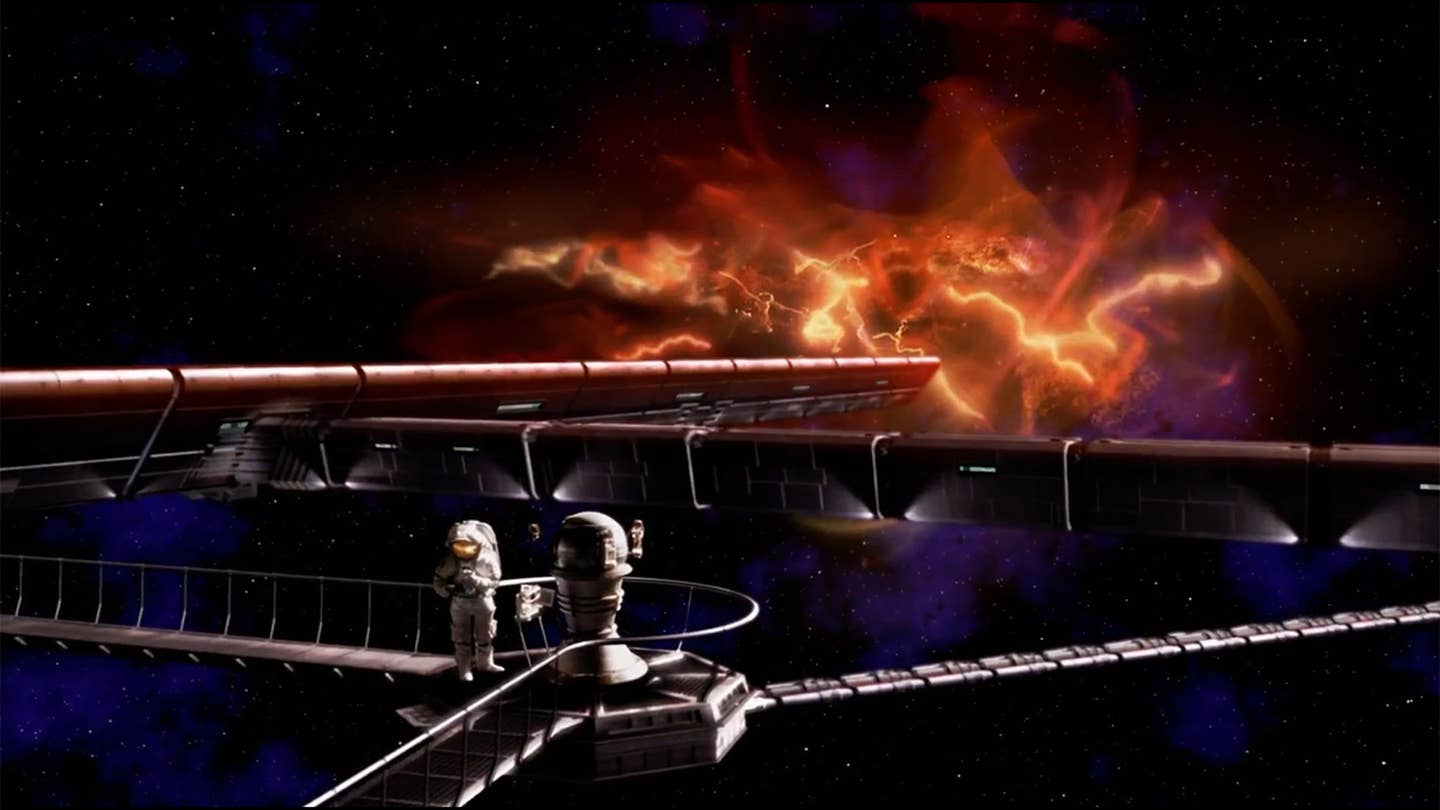Cosmic Rays Could Cause Mars Voyagers to Develop “Space Brain”
No, that’s not a superpower.

If you’ve been pinching your pennies in the hopes of buying a ticket to Mars sometime in your life, well, slow your roll. As it turns out, Mars-bound astronauts could wind up with a case of “space brain”—and that’s even scarier than the 1950’s sci-fi connotations it brings to mind.
According to scientists at the University of California-Irvine, the amount of cosmic radiation and charged protons that astronauts could be exposed to on a long journey through interplanetary space—say, on one of SpaceX’s excursions to Mars—could cause neurological problems such as impaired cognition and judgement, New Atlas reports. On top of that, the bath of high-energy rays and particles could also lead to a higher risk of cancer and impaired immune systems among deep-space travelers.
To test how humans traveling to Mars might be affected by the deluge of energy, the UC-Irvine team used the particle accelerator at New York’s Brookhaven Laboratory to simulate cosmic radiation, then exposed rats to it at similar levels to those people would experience on an interplanetary trek. The rats, the researchers found, suffered severe neurological damage, resulting in impaired memory and ability to learn. The rats also became less able to recover from traumatic memories, a trait known as “fear extinction.”
The symptoms of “space brain,” UC-Irvine’s Dr. Charles Limoli told UCI News, would manifest much like dementia in the first few months after leaving Earth. Astronauts, he said, would begin to lose their memory, their ability to multitask, begin suffering from increased anxiety, and make increasingly poor decisions—not exactly the ideal traits for people tasked with operating an interplanetary space ship.
Astronauts on the International Space Station also have to deal with rays from space; during an average six-month stay, a space station resident is exposed to roughly the same amount of radiation as someone undergoing radiation therapy, or one of the survivors of the Hiroshima or Nagasaki bombings. But while ISS residents are not protected by the atmosphere, they are shielded by Earth’s magnetic field, the powerful invisible force field created by Earth’s spinning iron core that deflects much of the sun’s nastiest energy.
So why not just shield the hell out of a Mars-bound spaceship, then? Well, it’s not that simple. Shielding adds mass, which is the enemy of any spacecraft; additional cosmic armor means more fuel is needed to move the ship, which means a larger vessel, which means more money. Plus, under a constant barrage of cosmic rays, the shielding itself could be transformed into an subatomic spall of charged particles, blasting the interior of the ship.
NASA, for what it’s worth, is already looking into ways to shield astronauts on a multi-year trip to the Red Planet; the agency is exploring using means as high-tech as boron nanotubes and as low-tech as water to protect an interplanetary ship. One group of scientists has even proposed using the astronauts’ own poop to help protect them from the cosmic storms.
And hey, for all we know, Elon Musk is hard at work devising some sort of Star Trek-spec deflector shield for his future Mars ship.
P.S. Yes, that's a screen grab from the 2005 film Fantastic Four.
